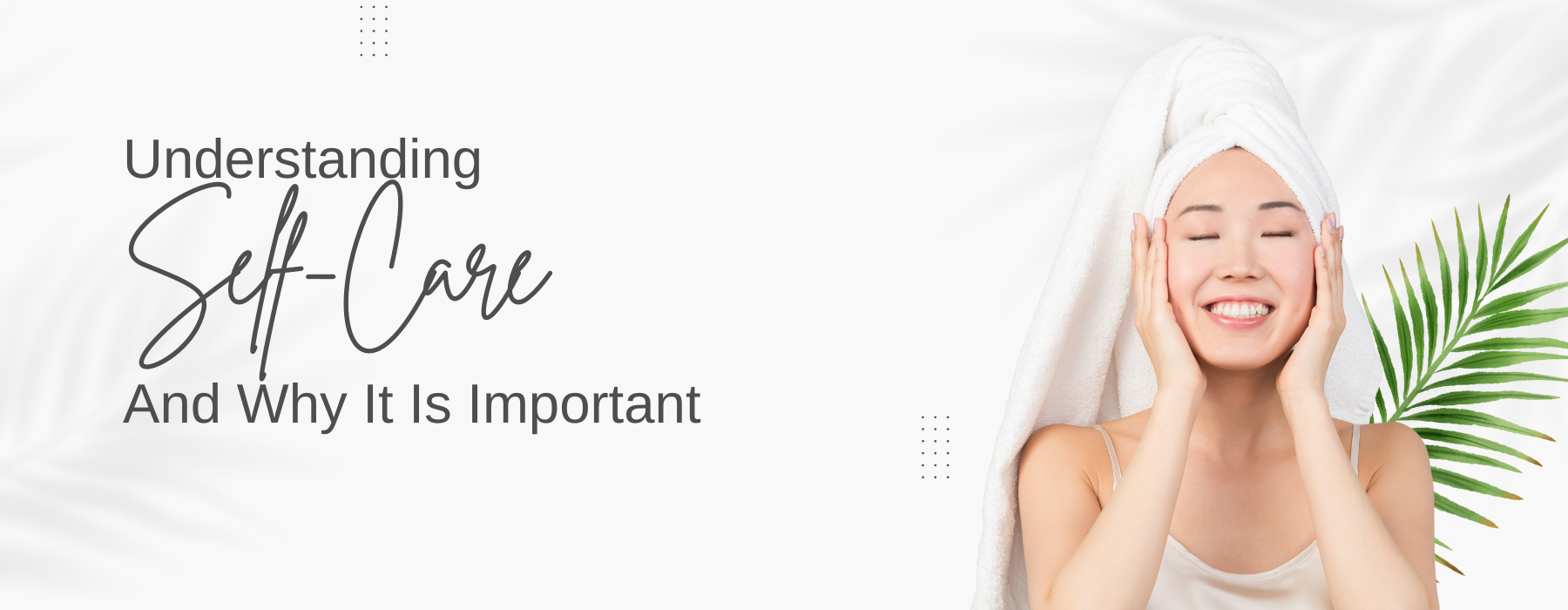How to Tackle Hard Water Stains on Windows and Mirrors
24 May 2025Direct Care | 15 Jul 2024
Understanding Self-Care And Why It Is Important


Self-care has become a buzzword in recent years, but its significance goes far beyond a trendy concept. It encompasses a wide range of activities and practices that individuals engage in to maintain and improve their physical, mental, emotional, and spiritual well-being. In this blog, we discuss what self-care is, the importance of self-care, and how you can incorporate it into your daily life.
What is Self-Care?
Self-care is the practice of taking care of various aspects of your life to promote health and wellness. According to the World Health Organization (WHO), self-care involves the ability to promote health, prevent disease, maintain health, and cope with illness and disability with or without the support of a healthcare provider. It includes activities that address physical health, mental health, relationships, and spiritual well-being.
Also Read:- 6 Top Product Categories That You Can Access On Direct Care
Key Components of Self-Care
Physical Health
This includes activities such as regular exercise, eating a balanced diet, getting enough sleep, and maintaining good hygiene.
Mental Health
Engaging in activities that reduce stress, improve concentration, and promote emotional well-being, such as meditation, mindfulness, and therapy.
Emotional Health
Being aware of your feelings and taking steps to care for your emotions, such as journaling, talking to a friend, or seeking professional help if needed.
Spiritual Health
Activities that help you find meaning and purpose in life, such as prayer, meditation, or spending time in nature.
Why is Self-Care Important?
Self-care is essential for maintaining overall well-being and quality of life. Here are some reasons why it is crucial:
1. Reduces Stress and Anxiety
Engaging in a self-care routine has been clinically proven to reduce or eliminate anxiety and depression, reduce stress, improve concentration, and increase happiness. By taking time to care for yourself, you can better manage daily stressors and improve your mental health.
2. Improves Physical Health
Regular self-care activities such as exercise, healthy eating, and adequate sleep can enhance your physical health, boost your energy levels, and strengthen your immune system. These practices can also reduce the risk of chronic diseases such as heart disease, stroke, and cancer.
3. Enhances Mental and Emotional Well-Being
Self-care promotes better mental health by providing opportunities to relax, recharge, and engage in activities that bring joy and fulfilment. It can help reduce symptoms of depression and anxiety, improve self-esteem, and foster a positive outlook on life.
4. Increases Productivity and Focus
Taking care of yourself allows you to recharge and rejuvenate, leading to increased productivity, improved concentration, and better problem-solving abilities. When you are well-rested and healthy, you can perform better in your daily tasks and responsibilities.
5. Prevents Burnout
Regular self-care can help prevent burnout, which is a state of physical, mental, and emotional exhaustion caused by prolonged stress. By prioritising self-care, you can maintain a healthy balance and avoid feeling overwhelmed.
6. Improves Relationships
When you prioritise caring for yourself, you have more emotional resources to invest in your relationships. Taking time for yourself helps prevent burnout and enables you to show up as your best self in your interactions with others.
7. Boosts Self-Esteem and Self-Worth
Personal care practices can boost your self-esteem and self-worth. By prioritising your needs and engaging in activities that make you feel good, you message yourself that you deserve care and attention.
How to Practice Self-Care
Building a self-care routine involves determining your overall level of health, identifying stressors, and formulating a plan that suits your health and lifestyle. Here are some steps to get started:
1. Assess Your Current Health
Think about your current health and identify areas of vulnerability. Have you been diagnosed with any health problems related to your lifestyle?
2. Identify Activities That Bring You Joy
Make a list of things that bring you enjoyment, big or small. Determine which activities replenish your energy and restore your balance.
3. Set Goals
Set goals to incorporate self-care behaviours into your daily life. Decide how often you’ll practice these activities and make a commitment to stick to your plan.
4. Consider Professional Help if Needed
If you feel you need an extra level of support, don’t be afraid to ask for help. Going to therapy is also a form of self-care.
5. Make Time for Self-Care
Even with a busy schedule, it is imperative to take time out every day for yourself, even if minimally. Schedule time for relaxing and stress-reducing activities such as yoga, meditation, or hobbies that you enjoy
The Final Word
The aforementioned highlights why Self-care is an important practice that encompasses various aspects of your life to promote overall well-being. By properly taking care of yourself, you can enhance your quality of life. Always make it a priority in your daily routine to ensure you are at your best for yourself and those around you.
Tags
Frequently Asked Questions
Error: No FAQ data found in ACF.





